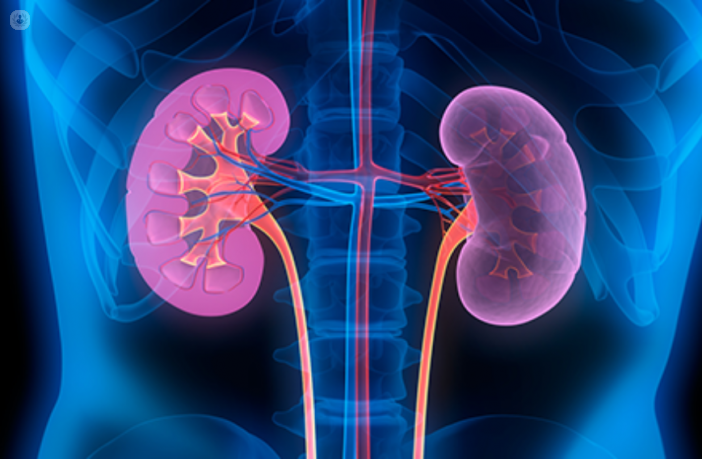

What is pyelonephritis?
Pyelonephritis a condition that causes the kidneys to become infected, resulting in inflammation. It can be of two types:
- acute: is caused by a urinary tract infection (UTI)
- chronic: it is more serious than the acute form. It is due to congenital anomalies that hinder the normal emptying of the renal collecting tubules.
Pyelonephritis is a serious condition that can cause permanent damage to the kidneys. It’s important to seek medical attention immediately if you experience the symptoms listed below.
What are the symptoms of pyelonephritis?
The main symptoms are:
- low back pain
- fever
- shaking chills
- lack of appetite and malaise
- nausea and vomiting
- pain when urinating
- cloudy urine with strong odour
- presence of blood in the urine
How is pyelonephritis diagnosed?
Diagnosis principally involves taking a urine sample which can be tested for bacteria or blood in your urine. You may also have a blood sample taken – again, to check if there are bacteria or other pathogens in your blood that could be causing the infection.
What are the causes of pyelonephritis?
In the case of chronic pyelonephritis, the cause is usually a severe anatomical abnormality at birth. However, it can also be an acquired condition if you have a flaccid bladder due to spinal cord injury.
Because acute pyelonephritis occurs as a result of a urinary tract infection, risk factors include having a weakened immune system, using a urinary catheter, or being female, as the urethra is shorter in women than in men.
Can pyelonephritis be prevented?
You can help prevent urinary tract infections by:
- drinking plenty of water through the day
- avoiding the usage of douches
- going to the toilet as soon as you need to
How is pyelonephritis treated?
The treatment aims to reduce the infection and reduce the acute symptoms. The first line of treatment is the prescription of antibiotics, and this should normally improve the symptoms within a few days.
In the case of a severe kidney infection, you may need to take antibiotics in hospital.
Finally, in the case of chronic pyelonephritis, scarring of the kidney can occur over time, so you may need to see a kidney specialist to discuss the option of repairing the kidney with surgery.

